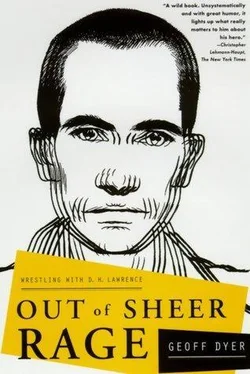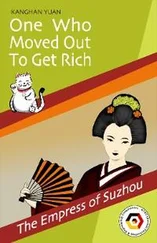p. 164 Magris: Danube , Collins Harville, 1989 p. 77.
p. 164 ‘a black ribbon. .’: Letters Vol. 2 p. 621.
p. 164 ‘is just twice. .’: ibid p. 622.
p. 165 ‘exactly like the. .’: ibid p. 636.
p. 165 ‘it got on. .’: ibid p. 637.
p. 165 ‘Never will I. .’: ibid p. 638.
p. 165 ‘Many thanks for. .’: ibid p. 638.
p. 166 ‘But always remember. .’: Letters Vol. 3 p. 595.
p. 166 ‘More and more. .’: Letters Vol. 4 p. 154.
p. 166 ‘for the first. .’: ibid p. 170.
p. 167 ‘I only know. .’: ibid p. 170.
p. 167 ‘and his rat-hole. .’: ibid p. 234.
p. 167 ‘I am essentially. .’: Letters Vol. 5 p. 67.
p. 167 ‘My business is. .’: Letters Vol. 6 p. 72.
p. 167 ‘All truth — and. .’: Letters Vol. 5 p. 519.
p. 168 ‘But I do. .’: Letters Vol. 7 p. 574.
p. 168 ‘One no longer. .’: op cit p. 355.
p. 168 ‘For my part. .’: Letters Vol. 7 p. 616.
p. 169 ‘very nice to. .’: Letters Vol. 6. p. 148.
p. 169 ‘that stillness in. .’: Letters Vol. 7 p. 235.
p. 169 ‘sitting in the. .’: ibid p. 211.
p. 169 ‘It is very. .’: ibid p. 510.
p. 17 °Carey: The Intellectuals and the Masses , Faber, 1992, particularly pp. 10–12 and 75–80.
p. 170 ‘struggle inside. .’: Letters Vol. 2 p. 161.
p. 171 ‘never finish making. .’: The Rebel , Penguin, Harmondsworth, 1962, p. 67.
p. 171 ‘both their wretchedness. .’: ‘Summer in Algiers’, Selected Essays and Notebooks p. 81.
p. 171 ‘only one thing. .’: ‘Summer in Algiers’, op cit pp. 89–90.
p. 171 ‘slightly intoxicated’: Selected Letters p. 67.
p. 171 ‘If the Greeks. .’: ‘Helen’s Exile’, Selected Essays and Notebooks p. 136.
pp. 171 ‘there is no. .’: ‘Love of Life’, ibid p. 60.
p. 172 ‘in the most. .’: The Gay Science p. 242.
p. 172 ‘the double damnation. .’: Selected Essays and Notebooks p. 19.
p. 172 ‘Never to wish. .’: I have set down Nietzsche’s ideal of amor fati like this because this is exactly how I remember it, even though I have remembered it — from R. J. Hollingdale’s translation — slightly inaccurately: cf Ecce Homo , Penguin, Harmondsworth, 1979 p. 68.
p. 174 ‘beastly Oaxaca’: Letters Vol. 5 p. 235.
p. 176 ‘Poor Bertie Russell. .’: quoted by Harry T. Moore in The Priest of Love , Penguin, Harmondsworth, 1976 p. 516.
p. 177 ‘To be brave. .’: Epilogue to Movements in European History , Oxford University Press, Oxford, 1981 p. 308.
p. 178 ‘men who give. .’: Into Their Labours , Granta, 1992 p. 329.
p. 184 ‘malaria — with grippe. .’: Letters Vol. 5 p. 230.
p. 191 ‘very pleasant’ and ‘very beautiful’: Letters Vol. 5, respectively p. 163 and p. 177.
p. 193 ‘Let a man. .’: Letters Vol. 3 p. 21.
p. 193 ‘a mere wreck. .’: Letters Vol. 5 p. 230.
p. 193 ‘so foul one. .’: Letters Vol. 3 p. 55.
p. 203 ‘Don’t for heaven’s. .’: Letters Vol. 6 p. 535.
p. 212 ‘it would be. .’: Letters Vol. 5 p. 585.
p. 220 ‘old nodality’: ‘Taos’, Phoenix , p. 100.
p. 224 ‘I am no. .’: Sea and Sardinia p. 49.
p. 227 ‘Cars of women. .’: quoted by Janet Byrne p. 385.
p. 230 ‘Think of the. .’: The Complete Poems 1927–1979, Noonday Press/Farrar, Straus and Giroux, New York, 1983 pp. 93–4.
p. 231 ‘What is it. .’: Letters Vol. 5 p. 196. p. 231 ‘Why can’t one. .’ and ‘Why does one. .’: Sea and Sardinia , respectively, p. 1 and p. 3.
p. 232 ‘a prisoner deprived. .’: The Book of Disquiet , Quartet, 1991 p. 125.
p. 234 ‘able to stifle. .’: op cit p. 80.
1. What Lawrence intended to sit under, Rilke, in the first of the Duino Elegies , was content merely to glimpse and speculate upon: ‘Perhaps there remains for us some tree on a hillside. .’
2. Lawrence himself said more or less the same thing in Kangaroo . The autobiographical fgure Richard Lovat Somers ‘wearied himself to death struggling with the problem of himself and calling it Australia’.
3. Rilke, too, writes of how he became ‘slightly intoxicated’ with Nietzsche.












